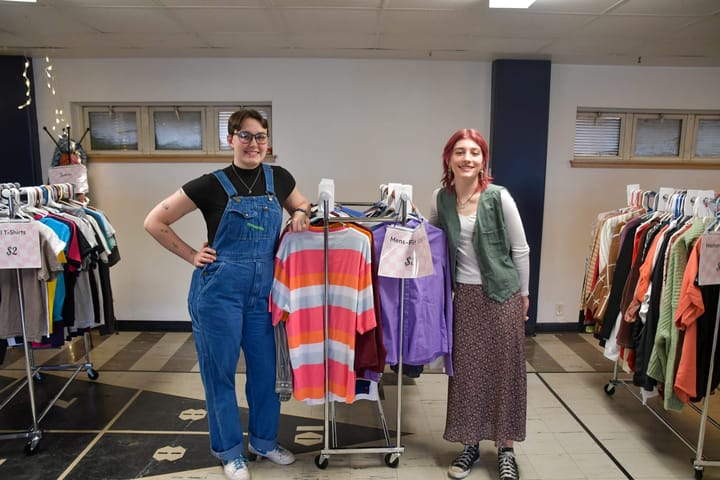Q&A: Peace Scholars prepare to spend summer in Norway studying peace and conflict
Juniors Elizabeth Yoder and Chloe Bartels are Augustana’s Peace Scholars. The program, sponsored by the Nobel Peace Prize Forum consortium, selects two students from each of its six Norwegian Lutheran colleges to spend seven weeks in Norway studying conflict, peace and war.
What encouraged you to apply to be a Peace Scholar?
Yoder: Ever since high school, I’ve been really interested in conflict. I think just researching different conflicts that are happening around the world and seeing how people are trying to resolve them really got me interested in programs like Peace Scholars.
Bartels: One: It’s an amazing academic opportunity, and I had been interested in it for a long time. Two: It hits everything I am passionate about ─ international peace, the government’s involvement on a global scale and how to solve human rights issues.
In preparation for your summer in Norway, what are some of your goals for this spring semester?
Yoder: I am trying to stay up to date with the things that are happening in the world, what people are doing about them, what things we are talking about in the Peace Scholar [program] that are relevant to what is happening today. To make sure the knowledge isn’t just left in Norway, but that we can apply it.
Bartels: Soak up as much as I can from my government classes in order to contribute better to the conversation. I am in an American foreign policy class right now, and I really want to make sure I take advantage of every tidbit in that class, as well as packing and figuring that stuff out.
How does being a Peace Scholar apply to your academic and career goals?
Yoder: Right now, my long term goal is to do work with refugees. I don’t know exactly what that looks like, but at the moment I’m thinking public policy. So I think this knowledge will be a great foundation for whatever I choose to do going forward. If it is public policy, it will help me to learn what does work, what doesn’t work and where to go from there.
Bartels: I want to work for the Department of State and, hopefully, go into foreign service. I think that this would be the perfect stepping stone into conversations on how to help human rights issues. You know America is all over the world. And as a foreign services diplomat, you have the opportunity to go to some of those countries. I think the conversations, knowledge and dialogue I learn from Norway will better prepare me to solve issues on a global scale.
What will you do in Norway?
Yoder: The program is seven weeks. There are courses like international humanitarian aid intervention, the history of conflict, peacebuilding and peace management. Courses like that to help us learn [about] what is being done in the world about the humanitarian crisis.
Bartels: You start off in Lillehammer, Norway, at the Nansen Dialogue Institute with 11 other individuals. The first portion is very conversation based, talking about peace and what we know about it. Then we move to Oslo, and we study at an international school there. We do a research component which we take a class all together there, and then we get to take one class of our choosing. I am interested in the gender equality class and the international politics class.
What social issue are you looking to focus on during your time in Norway?
Yoder: I’m really passionate about refugee rights. That is such a prominent issue right now, and the world just doesn’t know how to handle it. Different states are trying so many different things, whether it be refugee camps of integration model, but it is just kind of bursting at the seams. So seeing why there are refugees in the first place, and what we can do about it?
Bartels: I would like to do my research project on Native Americans, and not just in South Dakota, but in America as a whole. I want to get into what decisions were made. How did we get to this point? Where [did] we go wrong? Where [was] the American government dishonest? The social issue of injustices to historically marginalized groups of people is an issue I am passionate about.
The above interviews were transcribed from recordings and edited for length and clarity.



